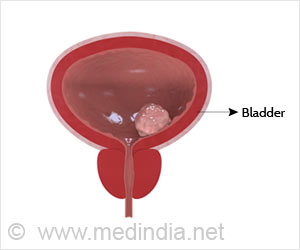The key to defeating Alzheimer's is in a molecular probe.
- Researchers at the Indian Institute of Science have developed a low-cost molecular probe capable of detecting a specific enzyme linked to the progression of Alzheimer's disease
- The probe can be integrated into a strip-based diagnostic kit, allowing for on-site diagnosis of Alzheimer's at an early stage
- Early detection of Alzheimer's disease is crucial for implementing appropriate measures against the disease, and this new method offers a promising approach to facilitating early diagnosis
Advanced Overview of Biomarkers and Techniques for Early Diagnosis of Alzheimer's Disease
Go to source).
The Affordable Strip-Based Kit for Alzheimer’s Diagnosis
Their findings, published in Analytical Chemistry, suggest that this probe can be integrated into a strip-based diagnostic kit, allowing for on-site diagnosis. Early detection of Alzheimer's is crucial for implementing appropriate measures against the disease. Alzheimer's disease is a progressive neurological disorder affecting a large number of individuals worldwide. It is characterized by a gradual deterioration of memory, thinking abilities, and cognition. The condition is attributed to the buildup of two abnormal protein structures in the brain: beta-amyloid plaques and tau tangles.Diagnosis and Treatment of Alzheimer's Disease
Go to source).
Fluorescent Probe is Leading the Way to the Future of Alzheimer's Diagnosis
The team, led by Assistant Professor Debasis Das and CV Raman postdoctoral fellow Jagpreet Sidhu, has developed a small molecular probe capable of detecting a specific enzyme associated with the progression of Alzheimer's disease. The targeted enzyme is Acetylcholinesterase (AChE), as studies have shown that AChE levels become imbalanced during the early stages of Alzheimer's, making it a potential biomarker for the disease.Neurons in the brain secrete neurotransmitters, molecules that instruct other cells to perform specific functions. Acetylcholine (ACh) is one such neurotransmitter, and its levels in the nervous system are tightly regulated by enzymes like AChE, which breaks it down into acetic acid and choline (3✔ ✔Trusted Source
Physiology, Acetylcholine
Go to source).
The research team analyzed the crystal structures of AChE and ACh and designed a synthetic molecule that mimics ACh. The developed probe contains a structural element (quaternary ammonium) that interacts specifically with AChE, as well as another element that binds to the active site in AChE and is digested, emitting a fluorescent signal similar to natural ACh.
To validate their method, the researchers tested the probe on both commercially available AChE and lab-made human brain AChE expressed in bacteria. They have achieved a proof-of-concept and a promising lead, aiming to further refine the probe for use in an Alzheimer's disease model. Their ultimate goal is to facilitate the translation of this research into practical applications for early diagnosis of Alzheimer's disease.
References:
- Advanced Overview of Biomarkers and Techniques for Early Diagnosis of Alzheimer's Disease - (https://pubmed.ncbi.nlm.nih.gov/36847930/)
- Diagnosis and Treatment of Alzheimer's Disease: - (https://www.ncbi.nlm.nih.gov/pmc/articles/PMC8482985/)
- Physiology, Acetylcholine - (https://www.ncbi.nlm.nih.gov/books/NBK557825/)










